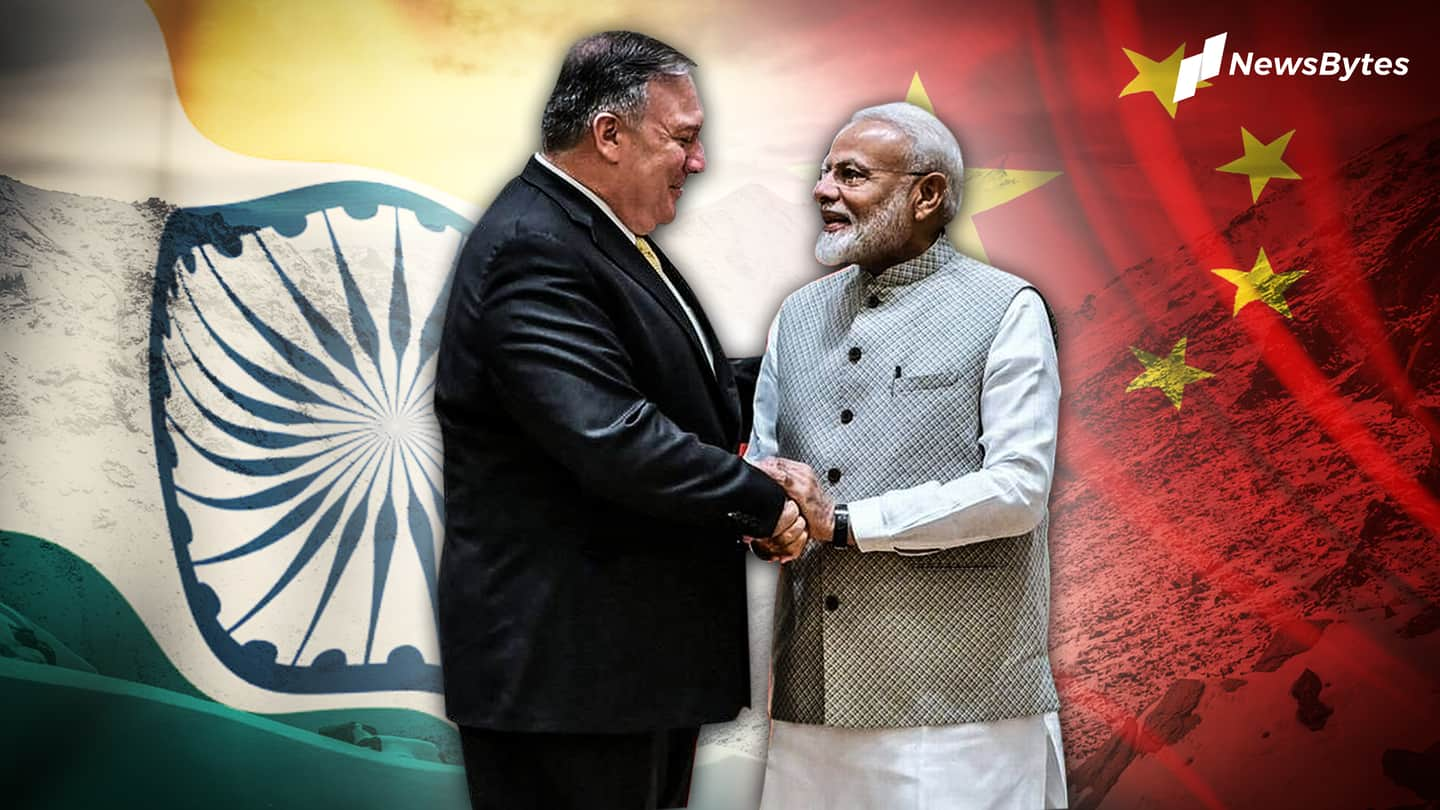
US shifting troops to counter Chinese threat to India, others
What's the story
The United States could have a role to play in the ongoing Indo-China conflict, as Secretary of State Mike Pompeo said on Thursday that the country was reviewing the position of its troops in Europe to face the threat which People's Liberation Army poses to Asian countries like India, Vietnam, Indonesia, Malaysia, and the Philippines, as well as South China Sea.
More details here.
Details
The review is being done on President Trump's directions
At the Brussels Forum 2020 of the German Marshall Fund, Pompeo was asked why the US was reducing its troop's presence in Europe, specifically Germany.
As per the review, being done on President Donald Trump's directions, the number of troops on German soil could be brought down from 52,000 to 25,000.
Pompeo said the US military has to be "postured appropriately" to meet challenges.
Quote
Pompeo batted for readiness to counter PLA
"We are going to make sure we are postured appropriately to counter the People's Liberation Army (PLA). We think that the challenge of our times, and we are going to make sure we have resources in place to do that," he said.
Context
India and China fought at Galwan Valley after decades
Notably, Beijing and New Delhi were engaged in military combat after decades at Galwan Valley, Eastern Ladakh, earlier this month. The fight ended with the martyrdom of 20 Indian soldiers, and the deaths of an almost equal number of PLA personnel.
Subsequently, China lay claim to the entire region and India rebuffed it calling it "untenable".
Talks happened at military and diplomatic levels too.
Threat
Pompeo spoke of Communist Party's threats
Pompeo said considering the ground realities there will be lesser troop's presence in some parts of the globe.
He explained there will be other places where US troops will be stationed to counter the Chinese Communist Party.
Pompeo then went on to mention India, Vietnam, Malaysia, Indonesia, South China Sea, the Philippines, saying they are at receiving end of threats.
Criticism
Trump administration's decision to move troops from Germany was criticized
Interestingly, Trump has been criticized for reducing troops in Germany, with some opining that it will embolden the threat from Russia to Europe.
Disagreeing with this argument, Pompeo said a review of the forces was pending for a really long time.
He said the capacity to respond to Russia was no longer determined by "having a bunch of folks garrisoned at some place".
Statement
According to Pompeo, US thought this decision through
Pompeo said the US deliberated on the nature of the conflict, threat, and thought about the allocation of resources like intelligence, air force, marines, etc.
"The decision that President Trump made with respect to Germany is an outcome of a collective set of decisions about how we are going to posture our resources around the world," he went on.
Support
In fact, Pompeo wants EU, US to face China together
Further, Pompeo also called on the European Union to join the US in resisting China, whom he has blamed several times for the coronavirus pandemic.
Accusing Beijing of stealing European know-how to strengthen its economy, Pompeo added, "There is a transatlantic awakening to the truth of what's happening. This isn't the United States confronting China, this is the world confronting China."
What he said
Pompeo mentioned tensions with India to drum-up support against China
Making a case against China, Pompeo referred to "deadly border confrontations with India" and Beijing's "opaque nuclear program".
He said China has defied several international commitments, including those pertaining to WHO, the WTO, and the United Nations. He also lambasted China's autocratic behavior towards the people of Hong Kong.
He also lamented how China has access to their markets, but the same isn't reciprocated.
Quote
We can take action after agreeing on threat: Pompeo
"Once we're confident that we have a shared understanding of the threat that is posed by the Chinese Communist Party, then we can begin to take action," he told the think-tank.